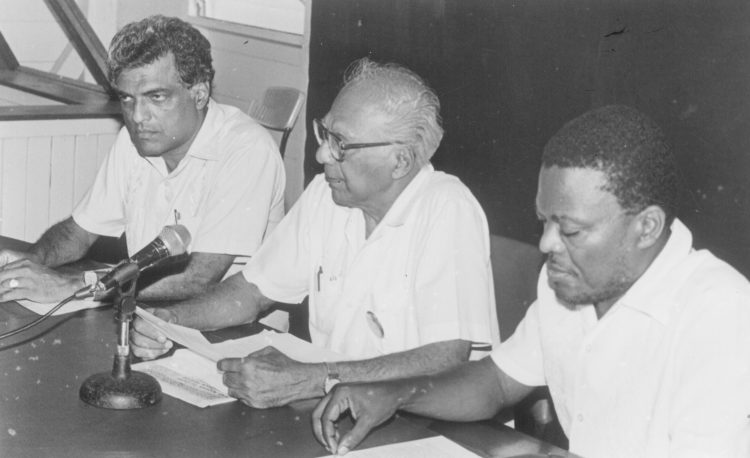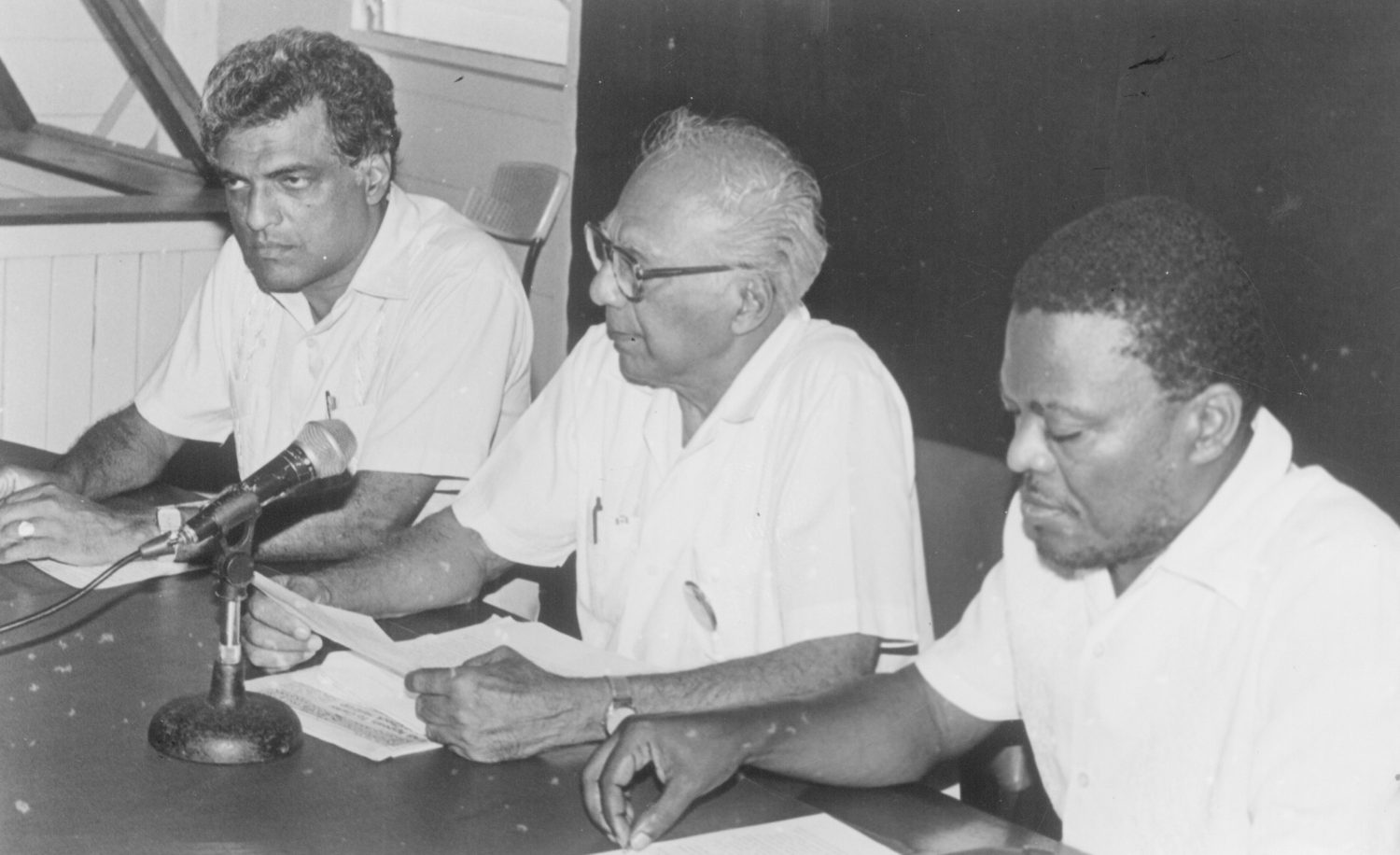By Miles Fitzpatrick
(Reprinted from Stabroek News Souvenir Edition, March 17, 1997, page 7)
Fate gave Cheddi Jagan only four years in office as President of Guyana. If our elections had been honest before 1992 he would probably have had thirty years.
It is therefore no fault of his that he will probably be remembered primarily as a leader in opposition – in the struggle for independence and, after independence, in the struggle for democracy.
It is his tragedy, and ours, that democratic deliverance came too late for him to even complete one term. On the other hand, would we have been aware of the true depths of his courage and strength if his access to office had been easier?
His personal significance to individual Guyanese depends on how old you are. To those of us under forty years he will probably be remembered as a great left wing opposition leader who finally got an honest election and won it.
To those of us who grew up before independence there is other side to the man of perhaps greater importance. One has to remember those days. When Cheddi Jagan the young dentist returned home in 1943, Guyana was British Guiana, a colony governed by a British governor “assisted” by a legislative council in which the governor, the colonial secretary, the attorney general and the colonial treasurer were officio British appointees. All the members of the executive council (the local cabinet) were appointed by the governor. Guyanese were expected to learn from these distinguished gentlemen good habits and manners. Cheddi Jagan changed all that. How can I put it? As a friend of mine said on the day we learnt of his death, “Cheddi showed us all that you didn’t have to put up with that bullshit, you can have balls”.

Within ten years of his return Cheddi Jagan and his compatriots had created a multi-ethnic political party which swept the board at the first universal suffrage election in 1953. Prior to 1953 he had fought, often alone, in the Legislative Council for independence and the rights of ordinary Guyanese. A personal legend that was to grow for fifty years started then.
A communist by conviction who looked on the Soviet Union as a beacon of mankind his appreciation of communism was formed in a period which saw the struggles of the Spanish Civil War and the Second World War in which the Soviet people played the largest role and paid the highest price.
That world of Soviet leadership finally collapsed with Gorbachev’s reforms. But unlike other international socialist leaders Cheddi Jagan survived and won a democratic election. There are many reasons for this, but surely one of them is the fact that, whatever his world view his deepest personal instincts were always democratic not authoritarian. Indeed, he was frequently accused of indecisiveness because of his insistence on searching for consensus. The rough and tumble of political debate, one sensed, gave him pleasure rather than pain.
Over nearly three difficult decades his leadership kept his party together and in battle trim, always present at the centre of all the treachery and turmoil of politics, like a large stone in a troubled stream.
That he achieved this in the land of the ephemeral is perhaps his greatest accomplishment.
One only has to compare the experience of the PNC in opposition to realise that none of this was inevitable.
Work, dedication, work, stubbornness, work day in day out, weathered the storm. There must have been many days and nights of pure despair, but he, quite simply, did not have any other plans. He was there for the duration.
In the end neither office nor power define a man. Cheddi Jagan will live on, not in statues and monuments, in books or in speeches, but in the sometimes indefinable tremors and flows of our lives and the assumptions that we live them on.
One remembers reading recently of a western journalist who visited China years after the crushing of the protest in Tiananmen Square. He had been there. As the taxi he was in approached the square, down the main thoroughfare that the tanks had used, he mentioned to the driver that the surface of the street looked new. “They have covered it over many times since,” said the driver, “but if you listen carefully you can still hear the ripples caused by the tanks. The tyres have a different hum.”
Cheddi Jagan never came to power by force of arms or crushed a rebellion. He never divided a country or harmed a student. He was a builder not a destroyer. Yet the metaphor holds true.
No matter how many layers history may place over our future the hum will still tell us that he passed this way.
The PPP now or later will name a leader from a different generation. They cannot provide a successor. The Oxford dictionary defines “succeed” as “take the place previously filled by.”
No one will succeed Cheddi Jagan.

